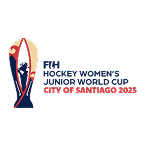
Tayyab Ikram was elected on 5 November as the 13th President of the International Hockey Federation at the 48th FIH Congress. In an exclusive interview with FIH.hockey, the new FIH President gives insights on his vision for the institution and the sport.
On “bringing FIH together”:
“The National Associations are the backbone of any International Federation. Actually, let’s not forget that International Federations were created by the National Associations and not the other way round. The same goes for FIH. Therefore, it’s our duty to get closer to the National Associations, to listen to their issues, challenges but also proposals in order to serve them better and elaborate together a joint and bold vision for the growth of our beloved sport. In other words, we need to empower the National Associations. It’s also a matter of respect. In this global equation, the Continental Federations play a key role as well. With unity, all hockey stakeholders will win!”
On hockey development:
“The mission number one of any International Federation is to develop the game. Development is the key to growth and to a successful future. Development also means solidarity! Establishing grassroots programmes is absolutely fundamental to have kids joining hockey, playing and staying. Furthermore, development schemes must take into account the specificities of each National Association or club. In other words, development activities have to be tailor-made. This is why listening to the needs of our community is really key. And our duty as FIH is to guide and advise.”
On resources:
“It’s clear that the overall lack of financial resources impacts negatively the expansion of hockey. However, since we have the potential to grow our sport – in terms of participation but also fanbase – therefore we have the potential to grow our resources accordingly. This has absolute priority! After a couple of really challenging years, the FIH finances are stable again. So, I’m positive that we can continue improving on this side.
And please allow me one comment: I feel that our sport is not big enough to be fragmented when it comes to income generation. We have to look for synergies within our global hockey community. I’m convinced we would all benefit from that.”
On hockey’s Olympic status:
“This has to be one of our top priorities, always! Being an Olympic sport gives hockey a dimension – as well as financial resources – which are essential for the growth of our sport. It goes without saying that I will use all my knowledge and experience of the IOC – Thomas Bach was the first one to call me after my election as new FIH President - and the Olympic movement at large to not only maintain but also reinforce our position with the Olympic family. Being an Olympic sport is a tremendous help to reach our growth potential.”
On sustainability:
“It is great that FIH has just launched a global sustainability strategy for hockey and also, let’s be honest, long time due! We’ve made a lot of progress with our partners and suppliers towards a water-free turf. And this is so crucial in a world where water is lacking for many people! But
sustainability doesn’t stop at protecting the planet. It includes being socially and economically responsible and engaged. Inclusivity and diversity have to be fostered. And we need to align with the UN sustainable development goals.”
On athletes:
“Athletes are the best ambassadors of hockey! We need to help them with their career, their future education, their mental health and psychological well-being. Athletes kept really strong and committed despite the unprecedented challenges of the global COVID-19 pandemic. They need to be at the centre stage of what FIH does.”
On fans:
“We all need to create the conditions for fans to come massively to our events and enjoy the values of our sport. This means going beyond simply organizing a match. We need to make of all our events a fan experience! We also need to ensure that fans can watch as many matches as they wish. And here, the launch of Watch.Hockey has been really helpful. Last but not least, we need to engage even more with our fans, as they are an integral part of our global hockey community.”























